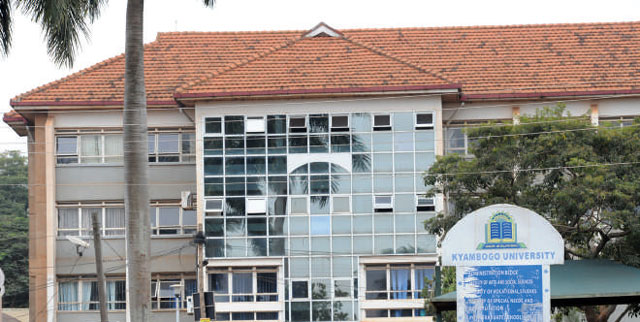
Kampala, Uganda | THE INDEPENDENT | It was a normal Wednesday morning when Aisha Nanfuma, a student pursuing a bachelor’s degree of science in statistics at Kyambogo University, left her hostel in Banda and headed to campus for lectures, only to be denied entry into the University.
Nanfuma had dressed in her long garbs with a veil, which is typically a scarf that covers the hair and neck, as one of the virtues expected of a female Muslim while in public. However, on reaching the entrance, she was denied access with guards demanding that she first removes her veil in the name of security.
“The security officer told me that she was not aware of what I was hiding in the veil so she said that given the current security alertness and bomb attacks, they could not allow me inside the university with a veil,” the frustrated student narrates. “I told her to check me as they have always done. But she insisted that I remove it lest I was not to be granted access.”
Hijab is regarded by many Muslims as a symbol of both religion and womanhood. The Qur’an tells Muslims – men and women – to dress modestly. Male modesty has been interpreted to be covering the area from the navel to the knee. For women, it is generally seen as covering everything except their face, hands, and feet when in the presence of men they are not related or married to.
The hijab is hence the Muslim dress code for both men and women which can be achieved when one wears in accordance to the guidelines which include covering parts considered as part of one’s nakedness as earlier alluded to.
Nanfuma notes that for years, she had never experienced such an embarrassment. However, she was not the only student to face this treatment. After spending time at the entrance, she realized that another veiled Muslim female student was standing by the gate, having also been denied entry on the same grounds.
“She was standing in confusion possibly contemplating whether she accepts their order or not,” she added.
Nanfuma says that for several minutes, she attempted an argument with the security officers in vain. And as she argued, several students including non-Muslims noticing the infringement on their rights, advised them to maintain their veil.
Faidat Abdulwahab, a first-year student pursuing a bachelor’s degree in procurement and logistics management, says that forcing students to unveil is not only an infringement on their freedom of worship as enshrined in the constitution of Uganda but also disrespectful. She equated the act to stripping a female in public.
Faidat notes that for years, Muslims have been wearing their attire and nobody had questioned it. To her, the practice if not curbed might evolve into something unpleasant. She adds that the university management should desist from what she describes as an Islamophobic, illogical, hysterical, and discriminatory decision to ban veils.
Faidat says that if the university is concerned with security matters, they should buy metal detectors.
Bashir Lule, the chairperson of Kyambogo University Muslim Students Association-KYUMSA, says that there have been comments on the practice but the leadership had not got evidence or anyone who wished to freely speak about the matter, as many students fear to land into trouble with the university management.
Lule is concerned that the acts of disrespecting female Muslim students wearing Hijab seem to be increasing.
He told URN that the practice has been happening during the examination period with Muslim girls being denied access to examination rooms until they unveil.
The student imam at KYUMSA Yusuf Bulaf also notes that although the ongoing practice might not have been institutionalized, for years students at the university have been going through such similar treatment when they are forced to remove their ‘kufi’ caps and veils during an examination.
Bulaf adds that the current security alert on possible terror attacks is making the situation worse. To him, there is a need to discourage the practice. The student Imam notes that they have written to the university management showing their discomfort with the practice with a need to have the controversial “rule” reversed.
“We have proposed that the university should put up female officers at the entrance to check ladies with veils so as not to have a breach in security systems nor into our rights and values as Muslims,” says Bulaf.
Reuben Twinomujuni, the senior Public Relations Officer of Kyambogo University, notes that the act was never sanctioned by the university management but it seems to be actions of individual security officers who are looking for means of ensuring that there is no security threat at the campus.
Nonetheless, Twinomujuni adds that management has discussed the matter and thinks that soon security officers will be briefed on how better this can be done without necessarily abusing the rights and freedoms of students.
This is not the first time female students are being forced to unveil while at a public university in Uganda. In 2011, Zaituni Namujju, BA Social Sciences student at Makerere was forced to remove her veil before sitting an examination.
At that time, the lecturer, Dr Eria Olowo Onyango noted that the lady was putting on an ‘’illegal” attire. For the lady to be allowed in the examination room, she had to unveil, an act that caused chaos and a strike by students and some staff members.
*****
URN
The post Kyambogo University security officers force Muslim girls to remove veils appeared first on The Independent Uganda:.
from The Independent Uganda: https://ift.tt/3FXd1ma
0 Comments